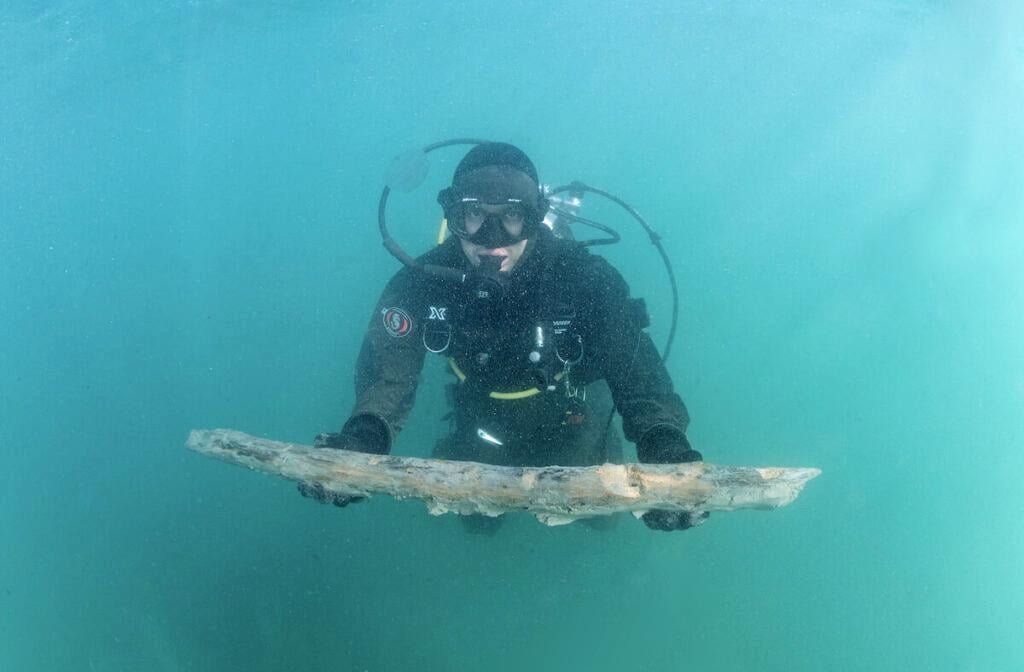Underwater archaeologists exploring the coastal stretch between Bernardin and Portorož, two bustling seaside resorts in Slovenia, have uncovered the remnants of an ancient harbor at the archaeological site of Fizine near Portorož.
 Credit: The Insтιтute for Underwater Archaeology
Credit: The Insтιтute for Underwater Archaeology
According to the Slovenian Press Agency, the findings were made during several campaigns of excavation since 2017. Among the most noteworthy discoveries are ancient masts, a rarity in archaeological finds. The Insтιтute for Underwater Archaeology, which has overseen the excavations, highlights the importance of these mast finds, noting their extreme rarity in the context of ancient maritime history. The masts, made of fir and spruce wood, date back to the 3rd and 4th centuries CE. Analysis suggests they were likely repurposed for use as moorings or as structural supports.
In addition to the masts, the site has yielded over 3,000 ceramic fragments from Roman-era layers, predominantly comprising imported late antique pottery such as amphorae, kitchenware, and fine tableware. This plethora of artifacts suggests a bustling trade hub catering to vessels carrying goods across the Mediterranean.
The discovery of a sail element, along with numerous wooden stakes, further enriches our understanding of ancient maritime activities. Such findings are exceptionally rare and often require interpretations based on experimental archaeology and visual historical sources.
Findings of masts and sails from antiquity are extremely rare. Researchers from the Insтιтute of Underwater Archaeology remarked: “The interpretations of the two Fizine elements are unique examples on a global scale,” Their rarity underscores the importance of experimental archaeology and visual historical sources in understanding ancient maritime practices.
The findings also underscore Slovenia’s rich maritime heritage. The country boasts one of the longest traditions of underwater exploration in Europe, dating back to 1884. Since the early 1960s, efforts in underwater archaeology have been underway, culminating in the establishment of the Insтιтute for Underwater Archaeology in 2013. Looking ahead, the insтιтute plans to focus on research projects and the promotion of underwater heritage.
The excavated artifacts will undergo conservation at a restoration center before being entrusted to the Sergej Mašera Maritime Museum in Piran.





